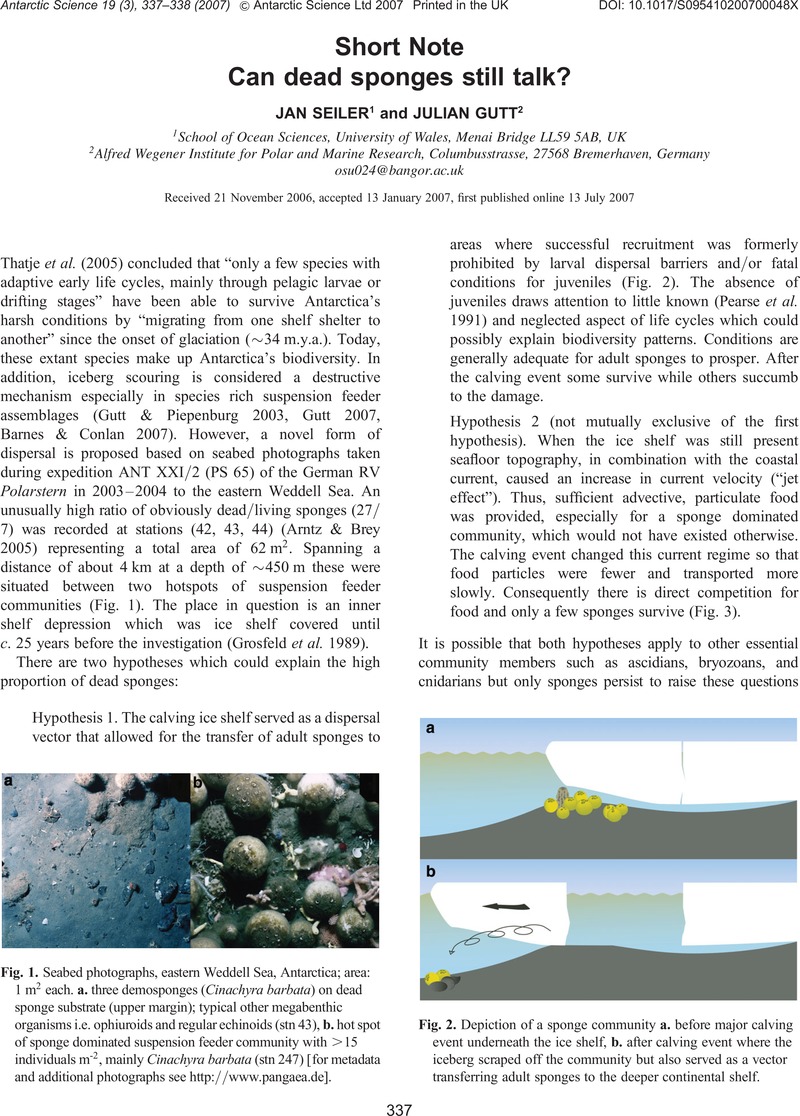Crossref Citations
This article has been cited by the following publications. This list is generated based on data provided by Crossref.
Cerrano, Carlo
Bertolino, Marco
Valisano, Laura
Bavestrello, Giorgio
and
Calcinai, Barbara
2009.
Epibiotic demosponges on the Antarctic scallop Adamussium colbecki (Smith, 1902) and the cidaroid urchins Ctenocidaris perrieri Koehler, 1912 in the nearshore habitats of the Victoria Land, Ross Sea, Antarctica.
Polar Biology,
Vol. 32,
Issue. 7,
p.
1067.
Gutt, Julian
Hosie, Graham
and
Stoddart, Michael
2010.
Life in the World's Oceans.
p.
203.
Gutt, J
Böhmer, A
and
Dimmler, W
2013.
Antarctic sponge spicule mats shape macrobenthic diversity and act as a silicon trap.
Marine Ecology Progress Series,
Vol. 480,
Issue. ,
p.
57.
Gutt, Julian
Bertler, Nancy
Bracegirdle, Thomas J.
Buschmann, Alexander
Comiso, Josefino
Hosie, Graham
Isla, Enrique
Schloss, Irene R.
Smith, Craig R.
Tournadre, Jean
and
Xavier, José C.
2015.
The Southern Ocean ecosystem under multiple climate change stresses ‐ an integrated circumpolar assessment.
Global Change Biology,
Vol. 21,
Issue. 4,
p.
1434.
Brasier, Madeleine J.
Barnes, David
Bax, Narissa
Brandt, Angelika
Christianson, Anne B.
Constable, Andrew J.
Downey, Rachel
Figuerola, Blanca
Griffiths, Huw
Gutt, Julian
Lockhart, Susanne
Morley, Simon A.
Post, Alexandra L.
Van de Putte, Anton
Saeedi, Hanieh
Stark, Jonathan S.
Sumner, Michael
and
Waller, Catherine L.
2021.
Responses of Southern Ocean Seafloor Habitats and Communities to Global and Local Drivers of Change.
Frontiers in Marine Science,
Vol. 8,
Issue. ,



